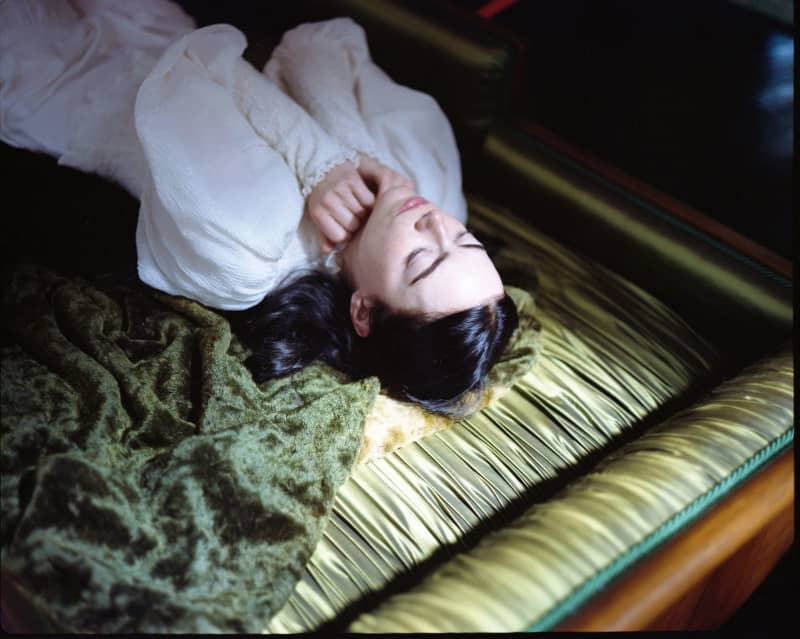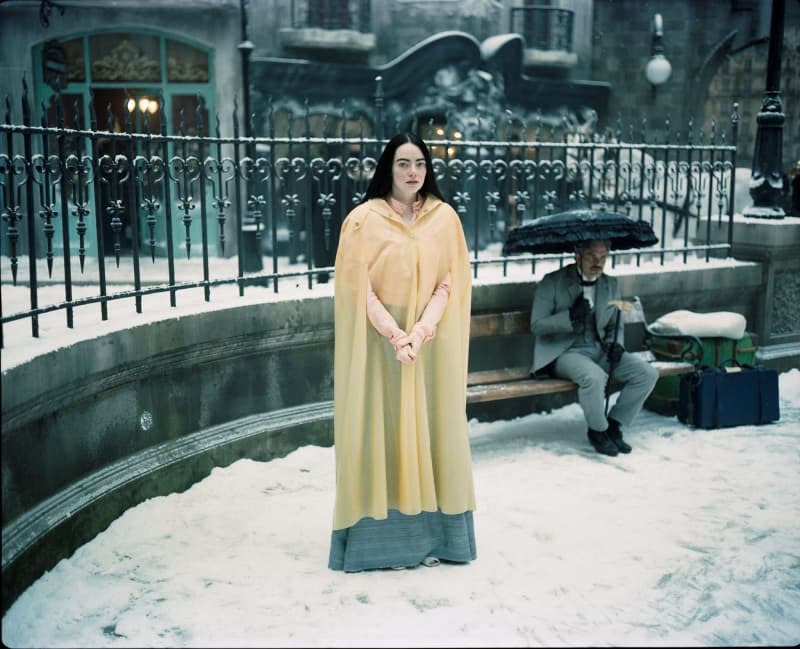Woman given infant brain in zeitgeisty feminist comedy 'Poor Things'

- Oops!Something went wrong.Please try again later.
- Oops!Something went wrong.Please try again later.
- Oops!Something went wrong.Please try again later.
Rarely do people agree on the quality of a film but "Poor Things" enjoyed a spontaneous ovation from critics and viewers alike at its premiere.
Since then, this feminist hit starring Emma Stone has been earning praise as an imaginative stroke of genius.
In the film, Stone plays a modern Frankenstein monster who liberates herself from her creator. After winning the main prize at the Venice Film Festival and two Golden Globes, viewers can now see "Poor Things" at their local cinema - and they should, but more about that later. So how far is all the hype justified?
For a start, the actors and actresses put in excellent performances. Emma Stone won a Golden Globe for her work and is sure to be nominated for an Oscar for her portrayal of an adult woman with the brain of a baby. She starts out by relearning how to speak and move, a process that delivers plenty of linguistic games and slapstick.
Willem Dafoe plays scientist Godwin, known as God. He finds Bella's lifeless, pregnant body after a suicide attempt and decides to revive her and implant the baby's brain. Dafoe plays Godwin as a man with flexible morals, a scientific genius with a fatherly streak.
Visuals like Gaudí on acid
A further positive feature of "Poor Things" (and why you should head to the cinema to watch it rather than doing so at home): The visuals are both intoxicating and overwhelming. Godwin and Bella live in a surreal Art Nouveau villa.
We are presumably in the 19th century, though that is not entirely clear. Not just the house, but the whole set looks as though it was designed by architect Gaudí on acid, as a journalist from Literary Hub magazine said recently.
Furniture, ships and houses are all creatively curved and full of playful details, with fans like flowers, or twisted columns. There are figures embroidered in satin on the walls and floors made of upholstered velvet.
Director Yorgos Lanthimos also uses a fish-eye lens and plays with other camera techniques to create images that are curved or blurred. Parts of the film are brightly coloured while others are in black and white.
There costumes are also magnificent: Bella's clothing ranges from dressing gowns to dresses plus a doctor's coat with manic puffed sleeves. The fabrics are shimmering and embroidered, full of ruffles like doll's clothes.
Barbie-style pop feminism
Speaking of dolls, the heart of the "Poor Things" story is a woman whom men treat like an object but who manages to free herself. That process starts with Godwin, who wants to keep her in his house to study.
Then there's a sleazy lawyer called Duncan Wedderburn, played by Mark Ruffalo, who takes advantage of Bella's newly-awakened sex drive, frees her from the house and takes her travelling. After an initial round of orgasms, he despairs that Bella isn't solely satisfying her lust with him. For Bella, conventions like monogamy or politeness are unfamiliar as she grew up isolated from the outside world.
When Duncan (who initially arrogantly advised her not to fall in love with him) becomes more and more jealous, Bella comments dryly: "Your sad face makes me discover angry feelings for you."
To Bella, whose perception is unbiased, some of society's rituals and moral concepts seem bizarre. Take shame, which is alien to her. Later in the film, she tries out sex work and approaches the business with an open mind.
The concept of polite small talk remains a mystery to her. Above all, however, she makes the men around seem pathetic, simple and possessive.
"Poor Things" gives us a version of feminism that is often very funny, as well as being very explicit and pretty pop. That's very much in the spirit of the times, earning comparisons with hits like "Barbie," and understandably so.
Let's talk about the sex
If you enjoy wildly imaginative visuals, "Poor Things" is definitely the film for you - but don't let some of the more extreme images trouble you, like watching a brain being cut into slices like a cake, or Bella gleefully hacks at a dead person's organs with a knife.
There is also a lot of nudity - perhaps too much. It seems a little as though Bella's sexual lust - which shapes many, many of the film's scenes - reflects the male gaze. During her first attempts at masturbation, she moans relish like a porn star.
The sex she has with her first lover Wedderburn is fast-paced and swiftly culminates in a series of orgasms. How realistic is that from a woman's perspective?
Perhaps the portrayal is fitting, given the film's overall concept, a grotesque comedy based on a novel by author Alasdair Gray, written in the 1990s.
Director Lanthimos is not aiming to showcase real people but characters who are humorously exaggerated, a technique that allows him to highlight daily customs that after the film may seem similarly absurd to viewers.


